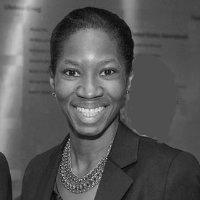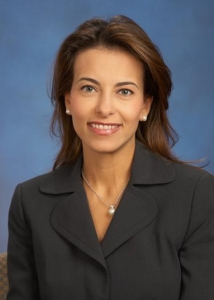Lanaya Irvin, Vice President, Bank of America Merrill Lynch, believes the financial services industry can only serve to benefit by moving toward greater diversity and inclusion.
“The glass ceiling is still very much a real thing. The industry continues to be male dominated at senior leadership levels. Sexism exists in some places just as racism exists.” But, she continued, the industry is evolving, and old stereotypes are giving way to more inclusive cultures. Industry leaders are working to change those perceptions, transform culture, and some of the legacy that may create hurdles for women and other groups. Our firm has been proactive in driving a culture of inclusivity.”
She believes this evolution is is, in part, a response to the challenges that the financial services industry has faced in recent years. After all, diversity provides the unique viewpoints and solutions that companies need today to gain an edge in an increasingly competitive marketplace. “At a high level, what’s particularly interesting to me is the positive shift the industry has been able to make. The domestic and global economic environment has required adjustment. Our strategy has been to refocus on our clients, and maintain that laser focus on the ways we can deliver value to them. Companies need diverse, talented professionals to do that.”
Irvin is leader of the Bank’s LGBT Pride Employee Network for Metro New York and the first female co-chair of Interbank Roundtable Committee, a consortium of 29 banks and financial services firms working together to share best practices around LGBT diversity and inclusion.
She believes that, as a group that represents multiple facets of diversity, LGBT women may face additional challenges when it comes to advancement, but she encouraged LGBT women to own their identities and stay true to themselves. “There is the complexity of having multiple minority identities. I think lesbian, bisexual, and transgender women in the workplace face many of the same challenges as heterosexual women, but silence around that identity can be more difficult.”
“For LGBT women, I would say, make your presence known,” she advised. “Our firm has made it clear that those perceived barriers should not exist and need to be disrupted. These barriers are not insurmountable.”


